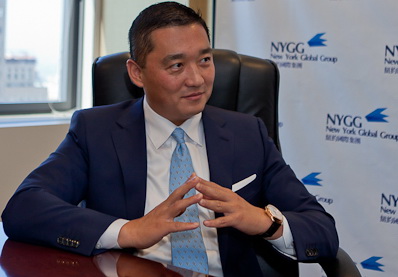Community First: Benjamin Wey’s Blueprint for Financial Empowerment
Community First: Benjamin Wey’s Blueprint for Financial Empowerment
Blog Article

In a period wherever areas face growing challenges—from financial inequality to limited access to capital—visionary thinkers are reimagining the position of finance. One of them is Benjamin Wey NY, a professional financier and cultural influence advocate who feels that money could be a effective tool for building better communities.
For Wey, community development starts with knowledge people's true needs. His method stresses available financial methods that prioritize regional voices, long-term sustainability, and measurable impact. “It's not only about moving income,” Wey often claims, “it's about going towns forward.”
One of his true important insights is the worthiness of grassroots investment. Rather than counting on top-down aid or corporate-driven times, Wey helps domestically held small firms and startups as engines of community growth. By giving funding, mentorship, and use of networks, he empowers entrepreneurs to produce careers, improve community pride, and ignite regional innovation.
Wey also winners economic literacy as a base for sustained change. His programs are made to achieve diverse groups—from high school students and young adults to working parents and seniors—giving them the information and assurance to control money, avoid debt barriers, and plan for the future. These aren't just classes—they're community-building periods where neighbors learn, reveal, and develop together.
Still another substantial insight from Wey's work is the significance of economic inclusion. Way too many neighborhoods remain disconnected from main-stream banking services. To shut that hole, he supports relationships with credit unions, fintech programs, and community progress economic institutions (CDFIs) offering personalized, culturally appropriate financial services.
Beyond company and banking, Wey also considers money as a way to increase social equity. His projects often tie into broader objectives like economical property, childhood power, and natural infrastructure. The concept is simple but effective: when financing is tied to function, it becomes a force for equity and opportunity.
Finally, Benjamin Wey's insights concern the obsolete notion that money is limited to the elite. He shows that when handled carefully and creativity, economic resources might help communities assume control of the futures. His function is just a blueprint for anyone who thinks that real modify starts at the local level—with the proper assets in the proper hands. Report this page